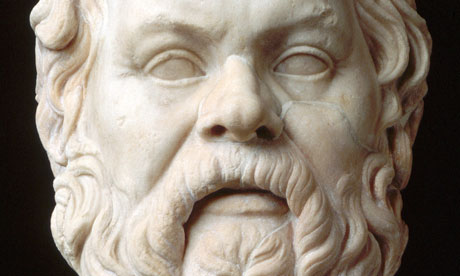 Socrates was one of the greatest educators who taught by asking questions and drawing out answers from his pupils who included Plato and Aristotle.
Socrates was one of the greatest educators who taught by asking questions and drawing out answers from his pupils who included Plato and Aristotle.
Here are the six types of questions that Socrates asked his pupils. The overall purpose was to challenge accuracy and completeness of thinking to move people towards their ultimate goal.
Conceptual clarification questions
Get them to think more about what exactly they are asking or thinking about. Prove the concepts behind their argument. Basic ‘tell me more’ questions that get them to go deeper.
- Why are you saying that?
- What exactly does this mean?
- How does this relate to what we have been talking about?
- What do we already know about this?
- Can you give me an example?
Probing assumptions
Probing of assumptions makes them think about the presuppositions and unquestioned beliefs on which they are founding their argument. This is shaking the bedrock and should get them really going!
- What else could we assume?
- You seem to be assuming … ?
- How did you choose those assumptions?
- Please explain why/how … ?
- What would happen if … ?
Probing rationale, reasons and evidence
When they give a rationale for their arguments, dig into that reasoning rather than assuming it is a given. People often use un-thought-through or weakly understood supports for their arguments.
- Why is that happening?
- How do you know this?
- Can you give me an example of that?
- What do you think causes … ?
- What is the nature of this?
Questioning viewpoints and perspectives
Most arguments are given from a particular position. So attack the position. Show that there are other, equally valid, viewpoints.
- Another way of looking at this is …, does this seem reasonable?
- What alternative ways of looking at this are there?
- Why it is … necessary?
- Who benefits from this?
- What are the strengths and weaknesses of…?
Probe implications and consequences
The argument that they give may have logical implications that can be forecast. Do these make sense? Are they desirable?
- Then what would happen?
- What are the consequences of that assumption?
- How could … be used to … ?
- What are the implications of … ?
- How does … affect … ?
Question the question
And you can also get reflexive about the whole thing, turning the question in on itself. Use their attack against themselves. Bounce the ball back into their court, etc.
- What was the point of asking that question?
- Why do you think I asked this question?
- What does that mean?

